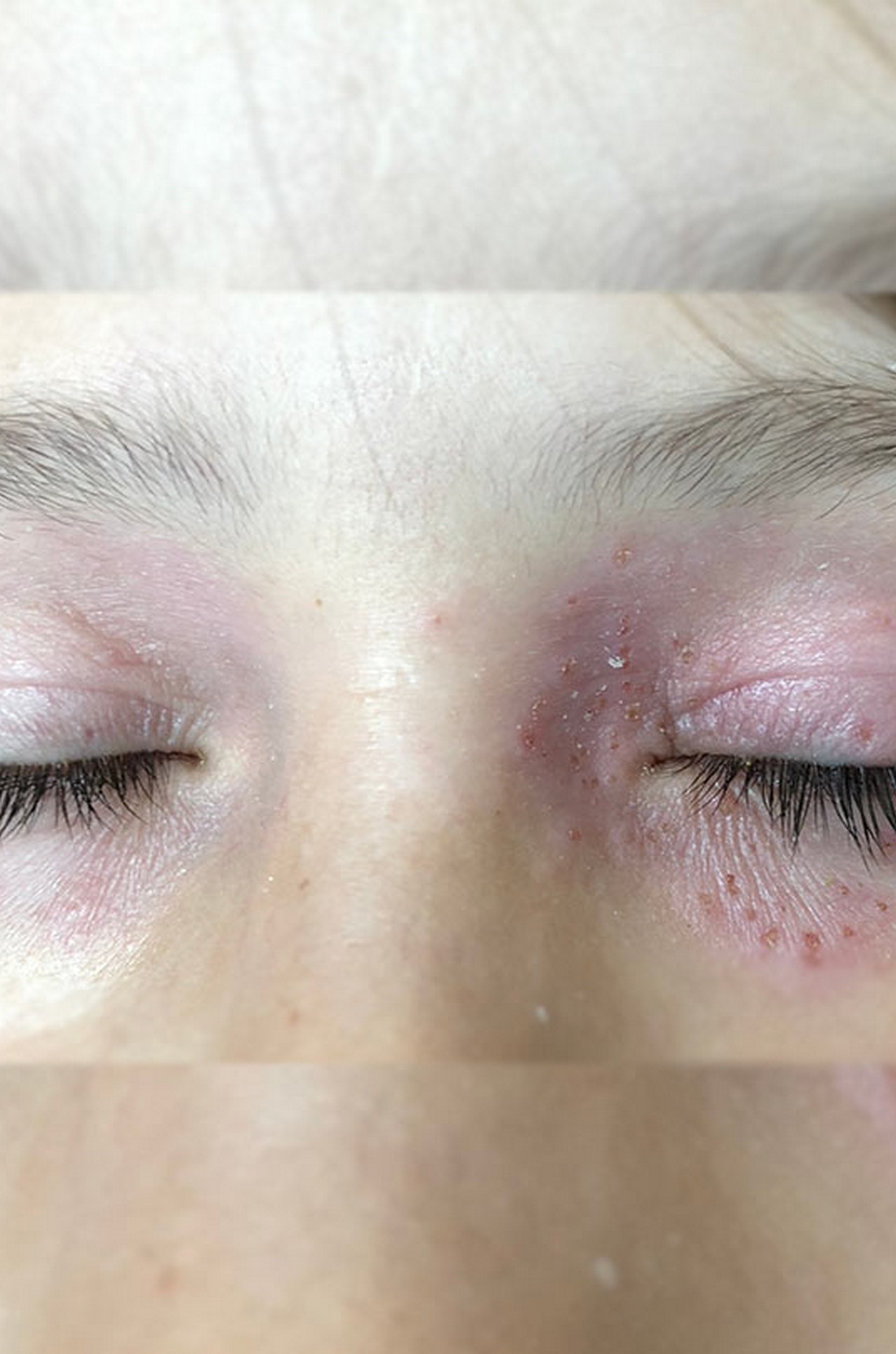
Thyroid imbalance is an increasing concern and conventional treatments may not always be enough to ease all the symptoms and related discomfort. That’s where essential oils for thyroid come into the picture in a supportive role. While there is not enough evidence to directly link the use of essential oils and the management of thyroid dysfunction, essential oils have been studied individually for thyroid-related issues. As a result, there are a variety of essential oils with specific active compounds and therapeutic properties that you can use as a natural way to good health and wellbeing. Here, we dive deeper into some of the most suited essential oils to see what they may do for you.
In This Article
Do Essential Oils Treat Thyroid Issues?
Essential oils do not treat thyroid issues but they may help manage a variety of symptoms associated with an imbalanced or unhealthy thyroid. For instance, if you have an underactive thyroid, you may experience certain symptoms like lethargy and fatigue, dry skin, irritability, digestive issues, inflammation, and weight gain (1). Some essential oils may help you to manage these better and support your prescribed treatment.
Similarly, an overactive thyroid may create uncomfortable symptoms like insomnia, digestive issues, arrhythmia (irregular heartbeat), anxiety, and nervousness (2). Essential oils may be able to provide some relief with regard to these auxiliary issues, as we’ll discuss in the following section.
Read on to take a more detailed look at some of the most effective essential oils for thyroid and their individual beneficial properties.
12 Essential Oils For Thyroid Health
1. Lemongrass
Shutterstock
Lemongrass oil with its fresh, citrusy aroma has potent anti-inflammatory properties. It inhibits pro-inflammatory cytokinesi XA type of signaling molecule that responds to infection, inflammation, and trauma and promotes healing process. and thus may reduce the allergic or inflammatory disease response linked with thyroid imbalance (3), (4). You can apply lemongrass oil topically on the neck if your thyroid gland feels swollen or enlarged.
Related: 17 Lemongrass Essential Oil Benefits & Possible Side EffectsDid You Know?Lemongrass contains an aldehyde called citral whose therapeutic properties help soothe inflammation (3). Other essential oils you can use that contain citral are lime, lemon, and orange.
2. Frankincense
Frankincensei X A resin from Boswellia tree, typically used for skin care and aromatherapy for relaxing and relieving pain. oil is a great inclusion in your arsenal as it has anti-inflammatory, pain-relieving, and immune-boosting properties (4). A study has found frankincense to be effective against psoriasisi XA skin condition that causes painful itchy rash, scaly patches on knees, scalp, elbow and trunk of the body. , one of the auto-immune disorders commonly linked with thyroid issues (6), (7).
According to research, frankincense may be able to help with brain and memory function, auto-immunity issues, diabetes, and asthma (8). All of these issues are directly or indirectly associated with an imbalanced thyroid (1), (2).
Stylecraze TriviaFrankincense essential oil is extracted from wood, seeds, leaves, and resins of the Boswellia tree through distillation.
3. Lavender
Shutterstock
Lavender oil may be effective against anxiety, a common issue caused by an overactive thyroid (2), (9). Research suggests that lavender may promote a sense of calm, and ease depression, which is also common in people with thyroid imbalance (10), (11). In addition, it may also boost antioxidant activity and reduce oxidative stress, which worsens and is prevalent in hypothyroidism (12), (13). Lavender may also be used to get relief from musculoskeletal paini XChronic pain in the bones, muscles, ligaments and nerves that results from carrying large weights or serious injuries. often associated with an imbalanced thyroid function due to its anti-inflammatory and analgesic propertiesi XMedactional properties that helps to relieve pain, typically used to relieve pain of rashes, swelling and inflammation. (14), (15).
4. Sandalwood
According to a study, sandalwood oil has anti-anxiety-like properties and may be helpful if you are experiencing panic attacks or anxiety associated with an overactive thyroid (16), (17). It may also help reduce hair loss caused by hypothyroidism. It may also help with dry or flaky skin associated with psoriasis (6), (18). Furthermore, a study suggests that sandalwood may help provide protection against oxidative and pollution-triggered stress, which exacerbate thyroid issues (12), (19), (20).
Related: Sandalwood Oil Benefits, Uses, Side Effects, And Dosage
5. Wintergreen
Shutterstock
Wintergreen oil may be effective against the aches and pains in joints and the muscle fatigue associated with thyroid imbalance (14), (21). Research shows that methyl salicylate, the active ingredient present in wintergreen oil, has strong pain-relieving properties (22). You can use this oil topically on sore and tired joints and muscles. Mix this oil with a carrier oil, like coconut oil or olive oil, if you find its scent overpowering.
6. Spearmint
Spearmint, scientifically called Mentha spicata, is also known for its analgesic (pain-relieving) properties. Research suggests that it may relieve joint pain, something that is common if you have thyroid dysfunction (14), (23). You can apply this topically on your achy joints to improve circulation and ease the pain.
7. Peppermint
Shutterstock
Peppermint oil serves multiple purposes when used as an essential oil for thyroid issues. According to research, it may aid digestion, reduce nausea, improve a sluggish metabolism, boost physical performance, and help with mood stabilization, and cognitive performance (24), (25), (26). You can add it to a carrier oil and massage your belly if you are having digestive issues related to hypothyroidism. You can also inhale it via a diffuser or consume food-grade peppermint with a cup of tea to get its benefits.
Related: Benefits Of Peppermint Oil For Skin, Hair, Health & How To Use
8. Rose geranium
Rose geranium essential oil may be helpful as an anti-inflammatory agent and may help with joint inflammation associated with rheumatoid arthritis in those with hypothyroidism (27), (28), (29). It may also help manage dry skin issues. You may apply diluted rose geranium essential oil on stiff and swollen areas for relief. You may also find yourself relaxed and in a better mood because of its exquisitely rosy aroma.
9. Black Pepper
Black pepper or Piper nigrum is a well-studied bioenhancer (30). That means that it can magnify the effects of other ingredients in an essential oil blend. Research suggests that black pepper works as an energy booster, a good counter for the fatigue experienced in hypothyroidism. There is also some evidence to suggest that it may be able to fight inflammation, anxiety, depression, and toxins in the body— all of which are common troubles associated with thyroid imbalance (31), (32).
10. Cilantro
Cilantro is an excellent detoxifying agent that may help to get rid of several heavy metals like lead, and mercury (33), (34). An accumulation of these toxins has been linked with thyroid dysfunction (35), (36), (37). This popular culinary herb and its essential oil contain a chemical called linalool with strong analgesic and anti-inflammatory properties (38), (39). As musculoskeletal conditions like arthritis are likely to coexist with thyroid issues, you can use this oil for massaging your joints and muscles as well (40).
11. Roman Chamomile
Anxiety, depression, and insomnia can be troubling conditions related to an overactive or underactive thyroid (41), (2). Roman chamomile is one of the best essential oils for hypothyroidism as all these respond very well to chamomile’s effects (42).
12. Ginger
Shutterstock
Ginger essential oil is a powerhouse when it comes to tackling an imbalanced thyroid. It helps the body cope with inflammation, allergic reactions, asthma, and some auto-immune issues. It also has an energizing effect that can help to combat fatigue linked with hypothyroidism. Additionally, ginger may be effective in alleviating nausea and digestive issues related to an imbalanced thyroid (43), (44).
While essential oils are considered to be natural remedies, to use them safely you need to follow certain precautions.
Precautions To Consider Before Using Essential Oils
- It is important for you to understand that essential oils are not a substitute for prescribed thyroid treatment. These are not meant to treat your thyroid condition, especially if it is severe.
- Before using essential oils to support your thyroid issues, speak to your healthcare professional. It is essential to work with a doctor if you suspect that you have thyroid issues.
- Most essential oils, in general, should not be swallowed unless there is scientific evidence that says that the particular oil is safe for oral consumption.
- Follow package instructions or the guidelines provided by a certified aromatherapist when using essential oils topically. To be on the safe side, always dilute an essential oil with a carrier oil like almond, jojoba, coconut, or olive before using it on your skin.
- Essential oils are not under the regulation of the FDA and may vary greatly in composition and concentration across brands. You should only buy from sources that you completely trust.
Essential oils can generally be used together with prescription treatments for thyroid-related conditions. Let’s see what some of the traditional approaches to treating thyroid dysfunction involve.
Conventional Medical Approaches To Thyroid Treatments
- Treatment Options For Hyperthyroidism
Hyperthyroidism or the condition of having an overactive thyroid is commonly treated with drugs that act as beta-blockersi XA medication that helps to maintain blood pressure and reduce chest pain by heart failure, or irregular heartbeat. . Other options for hyperthyroidism are antithyroid medications, radioactive iodine treatments, or in some cases, thyroid-removal surgery.
- Treatment Options For Hypothyroidism
An underactive thyroid or hypothyroidism often requires the intake of synthetic thyroid hormones for its treatment. The idea is for synthetic hormones to supplement the gap that is left because your body is not producing enough. Levothyroxine is a commonly prescribed synthetic thyroid hormone.
To brief, essential oils for thyroid can help you with a variety of symptoms associated with thyroid dysfunction like fatigue, inflammation, depression, anxiety, and brain fog. Some of the best essential oils that can support your thyroid treatment include lavender, lemongrass, ginger, frankincense, and chamomile. You do need to consult with your physician before using any of these. Also, do remember to never replace your prescribed thyroid medications with them.














